Get Your Viking On: The Exclusive 30 Sec Out BRCC Shirt Club Design
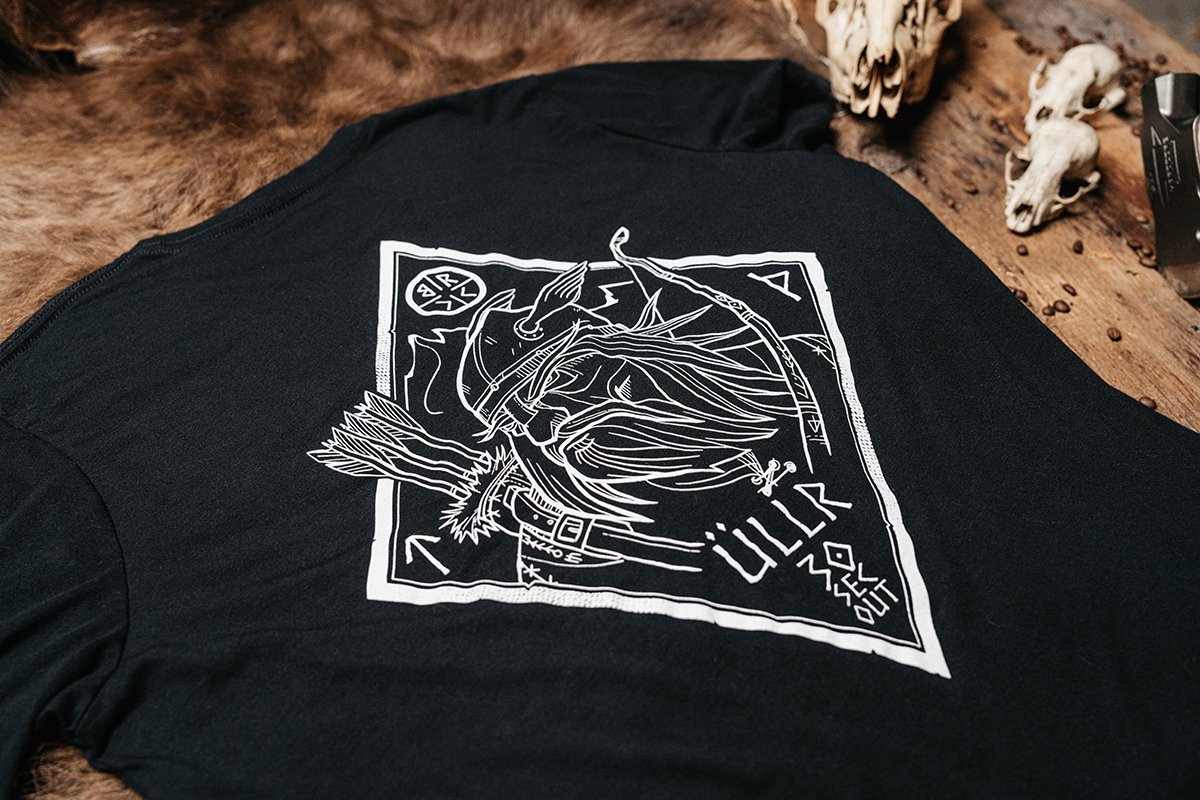
Sean “Evan” Evangelista, former Navy SEAL and the founder of Thirty Seconds Out knows a thing or two about making badass shirts and other merch. His apparel company has been cranking out original designs for nearly a decade that have become mainstays of veteran culture.
He’s also long been a friend of Evan Hafer and of the company he’s created. This month, just in time for the holidays, Black Rifle Coffee Company and Thirty Seconds Out have teamed up for a unique, limited-time T-shirt design that’s only available to BRCC Shirt Club members while supplies last.
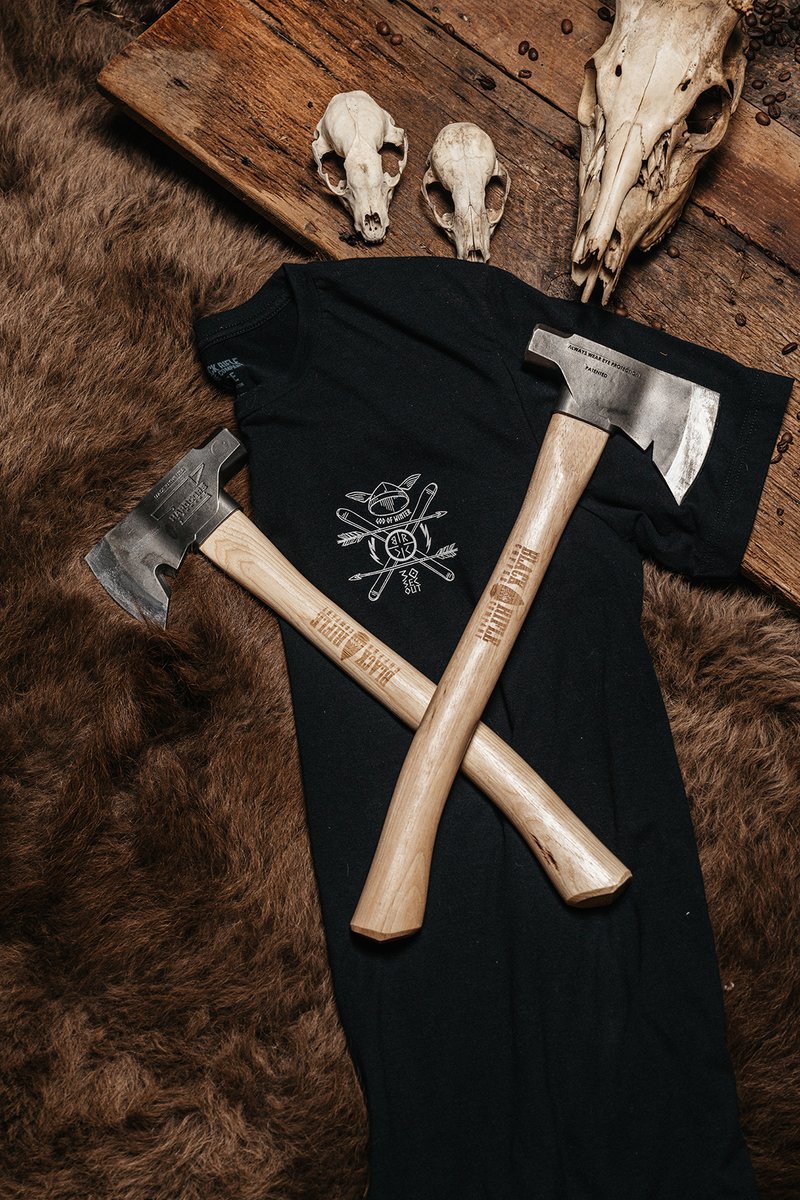
The mountains, snow, and skiing are a huge part of Evangelista’s life. He told Coffee or Die that these days, in addition to running his apparel company, he’s working for San Juan Mountain Guides as an Apprentice Rock and Alpine guide while training for a more advanced guide course.
And he's in the perfect place for it. In 2022, Evangelista moved to Ouray, Colorado, aka the Switzerland of America, because the town is surrounded by mountains.
“If anyone wants to go skiing or climbing, ask for me as a guide, and we’ll have an amazing time,” he said. “This is truly a one-of-a-kind mountain town with big mountain, ice and rock climbing, and the skiing and snowboarding you find at Telluride Ski Resort — but the gold is found in the backcountry.”
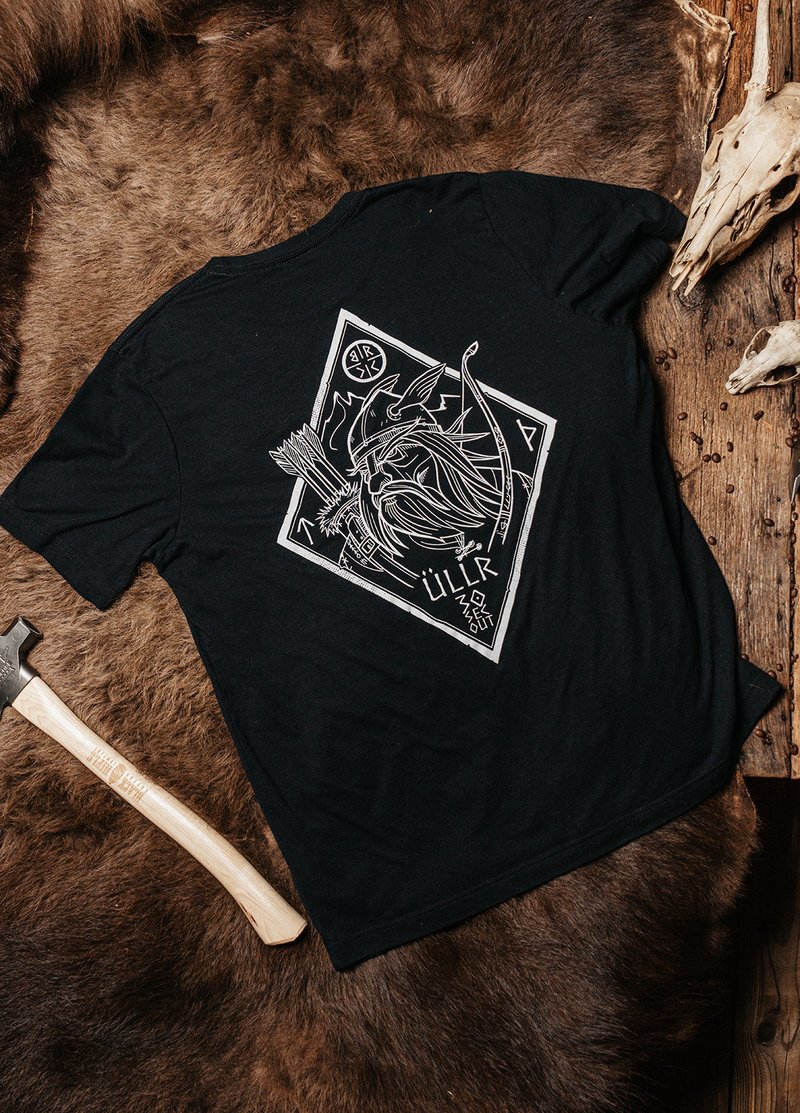
As for this month’s exclusive shirt design, every element is meant to invoke winter and snow.
The back of the shirt features a Viking warrior with a bow and quiver set in a diamond with the BRCC reticle logo at the top, styled to look like Nordic runes, with more runes at the two side corners and “ÜLLR” at the bottom above as similarly styled “30 Sec Out” logo.
“In our world, winter involves mountains, and Üllr is the God of Winter and also skiing,” Evan said. “It ties in with veterans finding an amazing life in the outdoors during and especially after a long, hard career, which can have a really positive effect on us.”
“Üllr has been depicted in art and stories as having a bow for a weapon, so we stuck with his history there as well,” he added.
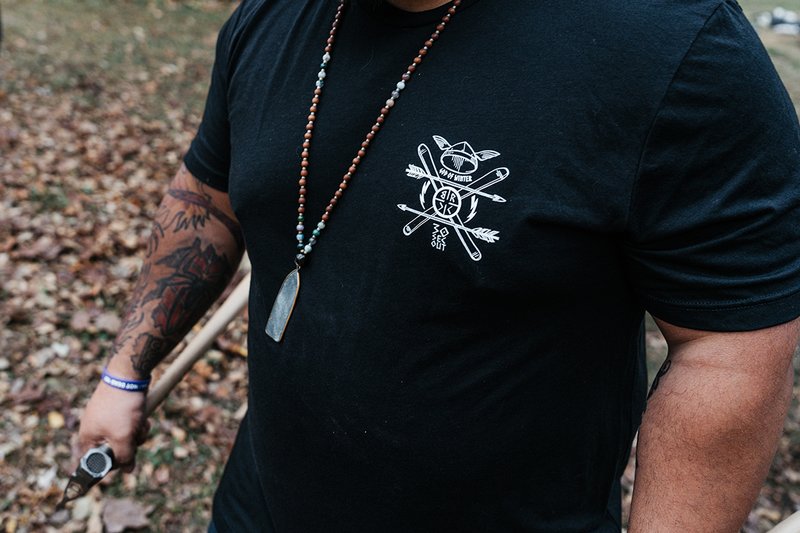
The front design is built around a pair of crossed skis with a Viking helmet and “God of Winter” above, the Nordic BRCC logo in the center flanked by lightning bolts. Arrows pointing East and West lie atop the skis, and the “30 Sec Out” logo from the back is repeated at the bottom.
The three runes incorporated into the design are “TIWAZ-Tyr,” which stands for honor, justice, leadership, and authority; “THURISAZ-Thorn,” which represents reactive force, defense, and conflict; and “URUZ-A,” representing a wild ox, physical strength, speed, and untamed potential.
It’s an epic design that’s only appropriate for a collaboration between two epic companies.
From Skater Kid to Navy SEAL
Evangelista has led a renaissance-man kind of life. He was an Army brat skater kid before he was a rock climber, and that all came before his career as a U.S. Navy SEAL. After 20 years in the military, he became a veteran entrepreneur mountain man because that’s the path that called to him.
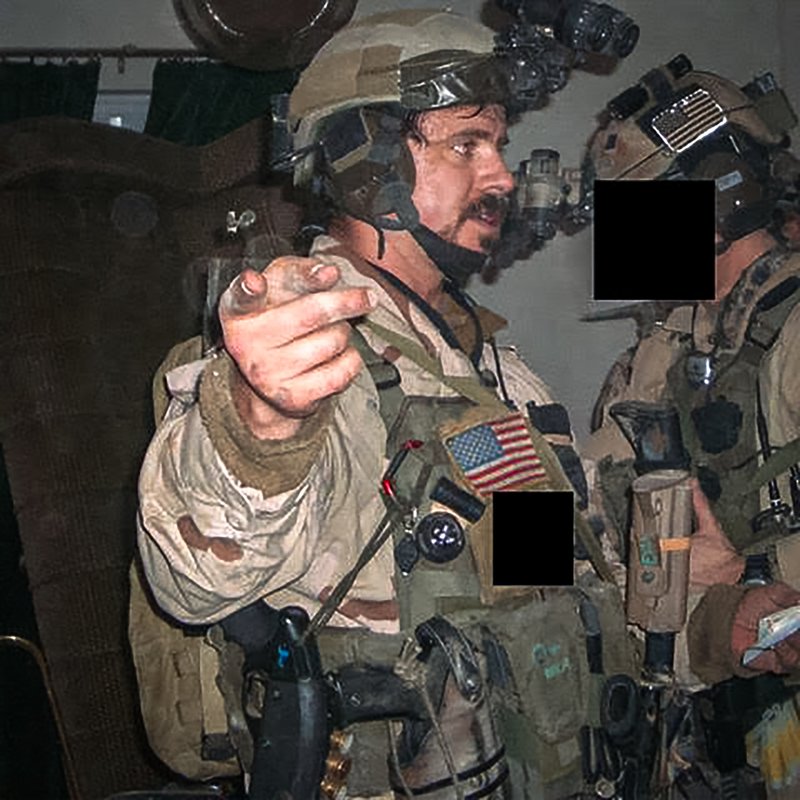
There have been three constants in his life and career: movement, growth, and transformation.
In 2014 he founded the military-inspired Thirty Seconds Out apparel company and still serves as its CEO. A perfect day for him is waking up to “have coffee with my wife, then climb and ski a few backcountry lines with some close friends.”
He always knew he wanted to live an active, outdoor lifestyle. Growing up in a military family during the 1980s and 1990s, he spent time in California, Hawaii, Georgia, and Maryland, always searching for the next thrill.
“I was a little skater kid in high school” into hardcore and punk rock music, he said. “I was not your sports jock guy at all.”
He hung out at the 9:30 Club in Washington, DC, and hit pop-up shows around the area. His Walkman was always rolling Bad Brains, The Misfits, D.O.A., Murphy’s Law, Rollins Band, or H20.
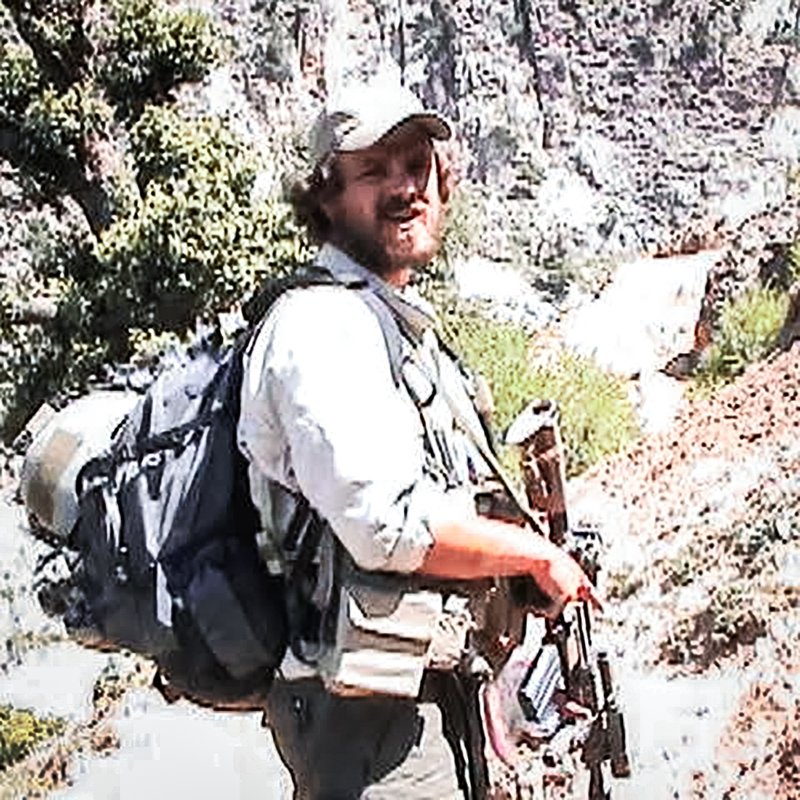
Outside of skateboarding and music, he found an outlet in rock climbing through a Boy Scouts Explorer program. He didn’t know it at the time, but that’s where his desire to work in special operations began, as well as his love of the outdoors.
With a high school record of sketchy grades and troublemaking, Evangelista said people probably didn’t think he’d get too far. He graduated in 1992 and hit a crossroads: join the Navy and try to become a SEAL, or go West to ski and snowboard — extreme discipline and the highest stakes imaginable, or be a ski bum.
“I wanted to test myself,” he said. So, he attended a mountaineering course in Alaska’s Chugach National Forest for 28 days. Halfway through, he’d made a decision: he was going to enlist when he got home.
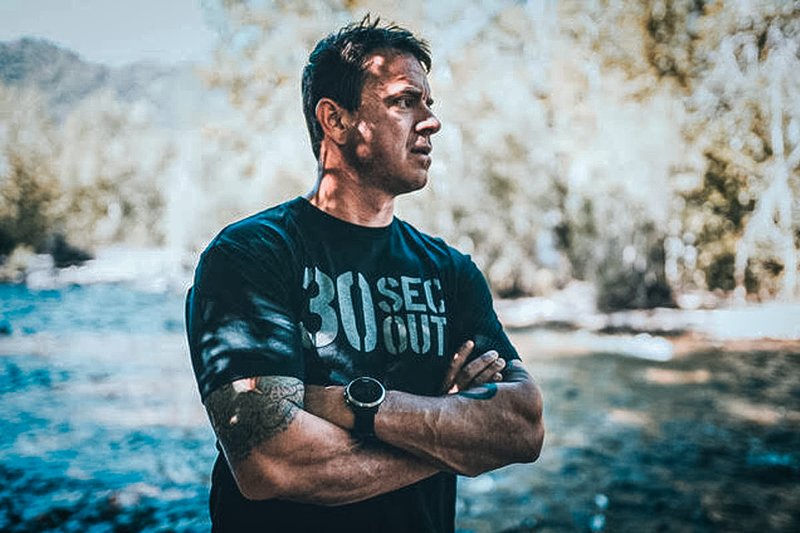
BUD/S and 9/11
He soon found himself in Basic Underwater Demolition/SEAL (BUD/S) training, and he was an excellent fit.
“I really started to feel like I was in the right place,” he said. “There’s a lot of suffering. People are quitting every day. You don’t know what’s going to happen. It was unpredictable. Every day and every night was an adventure. It was hard, but it kind of fulfilled my hyperactive kid sort of thing.”
Evangelista set goals for himself throughout his career, physically writing them out with care and thought. His first self-set goal in the Navy was: “Make it through BUD/S in one shot and don’t get rolled back.” He wrote that on a scrap of paper that he carried with him, and it worked.
“I wish I would’ve kept that; I don’t have it anymore,” he said. “I think that was one of those little micro things that just helped a little bit.”
Evangelista was determined to keep going until it didn’t make sense anymore. He never reached that point and graduated first in his class.
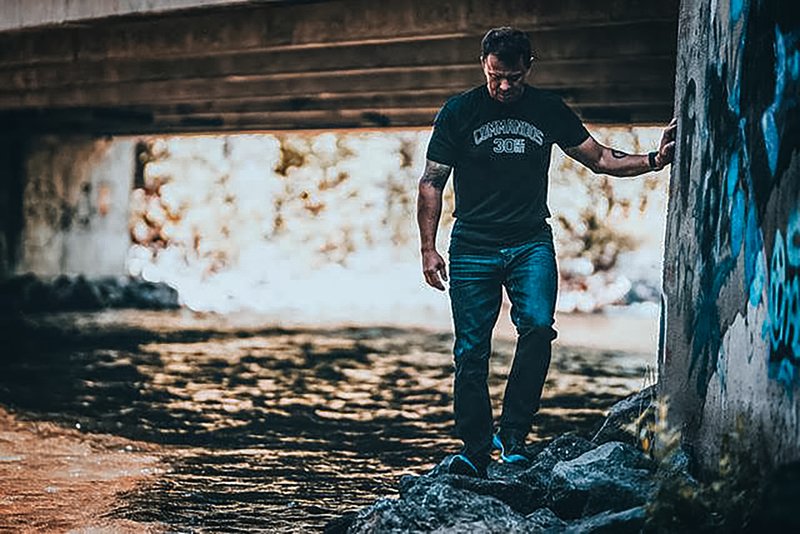
He spent his first few years in a unit in Hawaii diving and working with submarines. These were the pre-9/11, mostly sleepy post-Cold War days, and it was hardly what he’d signed up for.
“I wanted to be carrying a gun in the jungle or somewhere doing commando-type stuff,” he said. “I felt like I was mostly a diver, which is okay, but I didn’t go through all that training to strictly dive.”
Of course, everything changed after Sept. 11, 2001, but his first deployment in the post-9/11 era was to South America, not Afghanistan.
“It’s almost that feeling, I would imagine like you’re injured right before the Super Bowl, and then you’re just sitting there wearing the big puffy jacket on the bench,” he said.
After Hawaii, Evangelista served on several Teams before landing in a top-tier SEAL Team, where he would stay for the next 10 years
12 GWOT Deployments and Extortion 17
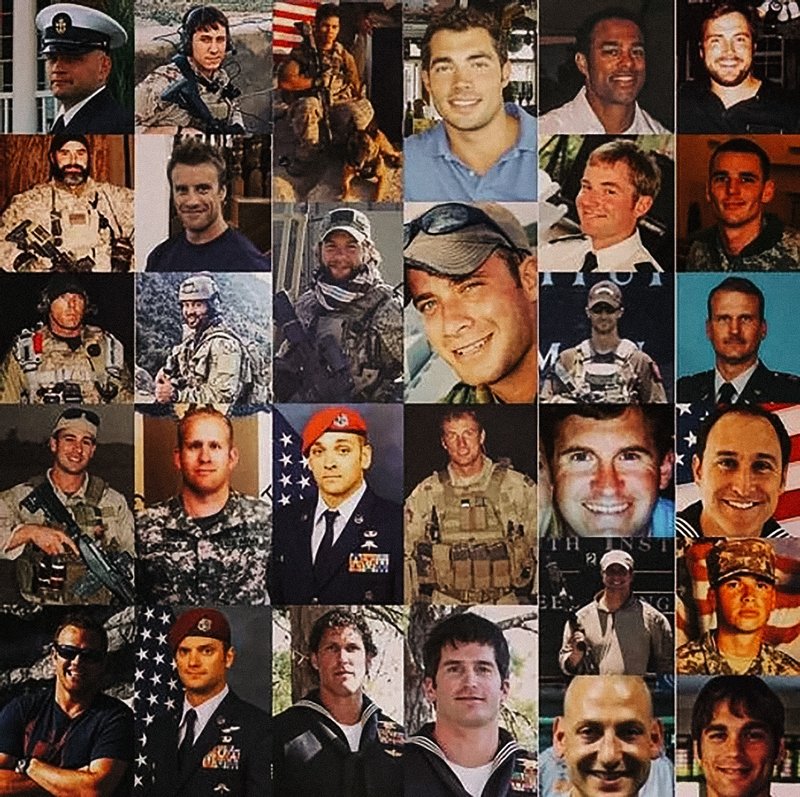
He first deployed with that top-tier Team in 2004.
“And then the deployments, every six months, started picking up,” he said. “The amount of combat we were seeing slowly started climbing — 2004 and 2005 — it was like a graph, just like a hockey stick, going up, up, up.”
He spent time as a sniper, breacher, team leader, and dog handler during his time on the Teams; he participated in hundreds of combat missions and worked in countless places around the world, including Central and South America, Cambodia, the Horn of Africa, Afghanistan, and Iraq.
The low point of Evangelista’s career came on Aug. 6, 2011, when an Army Chinook helicopter — Extortion 17 — was shot down in Wardak Province, Afghanistan. All 38 on board were killed, including 17 SEALs, many of whom were friends he’d worked with for years.
“About one-third of our team was dead in that one helicopter shoot-down,” he said. “Some of those guys were like my brothers.”
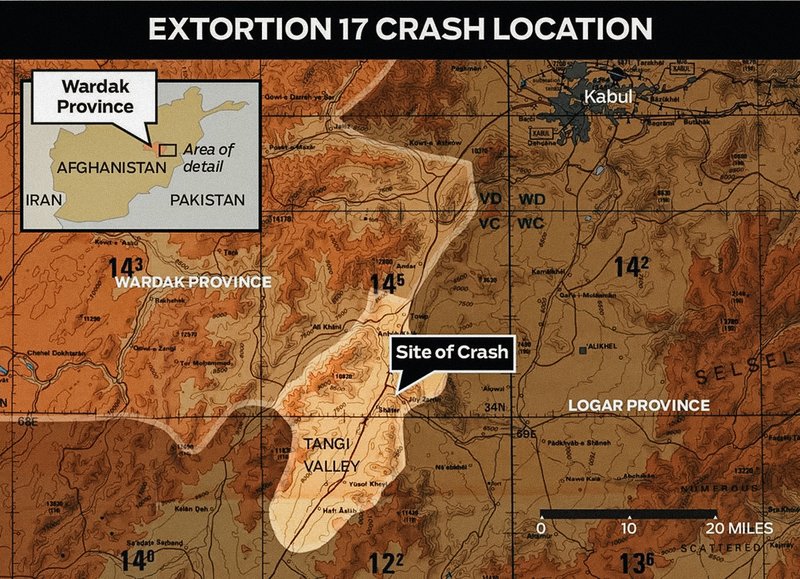
At the time, he was in Jalalabad and had secure-chatted with several of the fallen just hours before the tragedy. Evangelista said he’s grateful to the Army Rangers who secured the crash site and recovered the dead.
“The Rangers went to the site and dealt with all that shit,” he said. “They got a section of the [helicopter’s] rotor, and they carried that fucking rotor through bad guy country for miles just to give us something that we could put in our team room as a memorial to those guys.”
That was Evangelista’s 12th and final deployment and the beginning of the end of his time in the military. Back in Virginia, he found himself at a desk, and “it was hell,” but he knew it was coming.
“The longer you stay in [the military], the desk is hunting for you, and I don’t want anything to do with that,” he said. “I knew being at a desk was a really bad fit for me — I wanted to literally kick doors in and go to war with the boys, and when that time was over, it was time for me to leave and move to the mountains.”
He used the extra time in his staff job to plot his transition from the Navy and to do just that.
A New Chapter in the Mountains and Ski Patrol
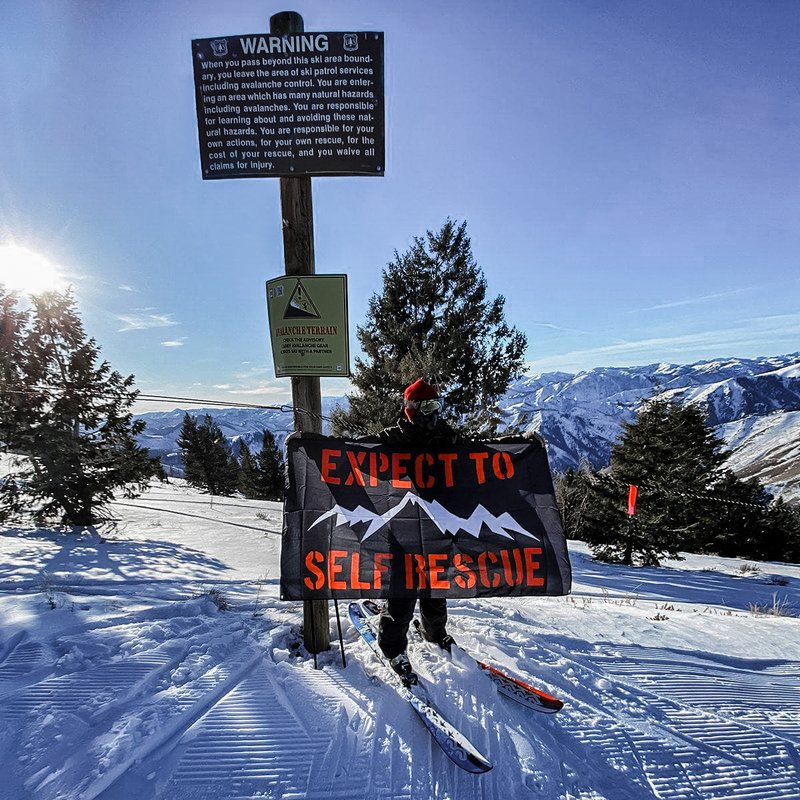
Overall, Evangelista says his military time was “90% awesome and 10% a total nightmare, like many careers out there that have high consequences.” Along the way, he “sustained a couple of brain injuries, broke a lot of bones, and got the usual joint problems that guys get doing this kind of work.”
He officially retired in 2014, and his “first move was to head West and leave that shit behind.” He landed in Sun Valley and worked to find a new balance in life.
He has used Mark Twight’s quote: “If you once did great things, you think you are great. You coast along on dead laurels, lifeless and wasting away,” to guide his transition from the military to the civilian world.
“You need to make conscious decisions to not be in a rut,” Evangelista said.
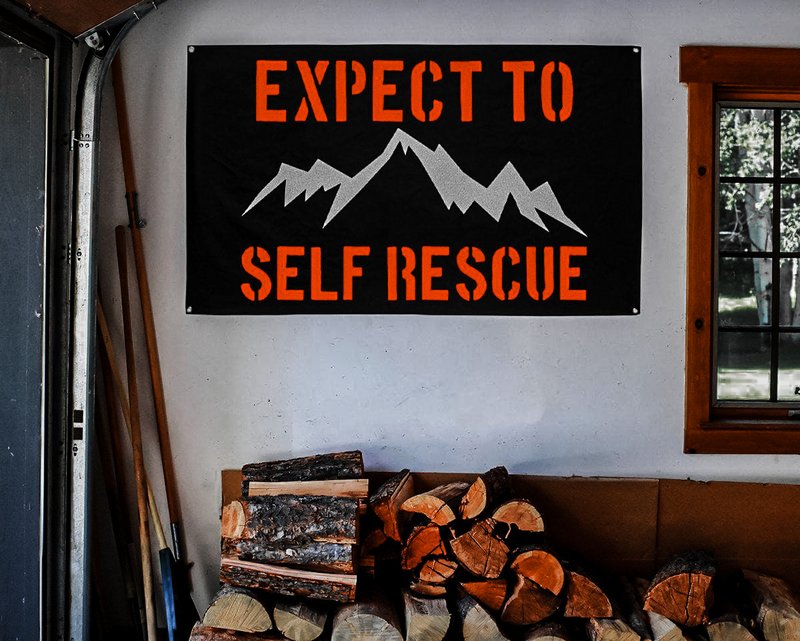
Staying physically active, spending time outdoors, throttling back on his drinking, and setting new goals helped him with the transition.
He knew he needed to “stay physically active because your body, to stay healthy, needs endorphins every day,” he said. “You need at least heavy exercise to keep your mind fresh and to keep from kind of going nuts, and the outdoors is the best place I could think of to do that.”
“Planning for a mountain objective feels a lot like getting ready to go into a combat operation. There’s a real risk involved, and it requires our full attention if we want to succeed and come back safely.”
He landed a job working for a tree-cutting company and made a new goal for himself: He would not only learn to ski but to train up to join the ski patrol.
“Most of the people that are locals in a ski town pretty much rip, and they’re really good to learn from,” he said. Evangelista made the team and worked for the ski patrol for three years. He stopped when he needed more time for his business and other outdoor goals.
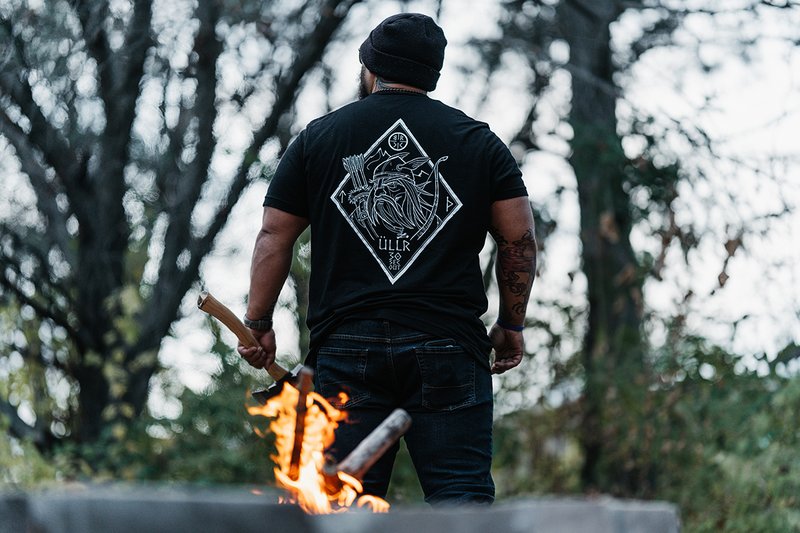
“I personally like pursuits that involve real consequences, and the outdoors have all that we can handle in that realm,” he said. “Planning for a mountain objective feels a lot like getting ready to go into a combat operation. There’s a real risk involved, and it requires our full attention if we want to succeed and come back safely.
“There can be a real feeling of teamwork and unity when your crew is heading into an objective. You feel very alive.”
Moving On To — An Apparel Company?
Evangelista has always been interested in graphic arts and began creating himself after he left the Navy. He soon developed a style that mixed his punk-rock, skater-kid roots with his military background and his love for the outdoors.
It’s like North Face or Patagonia mixed with thrash metal energy, all with an overlying operator theme. And that is what became Thirty Seconds Out.
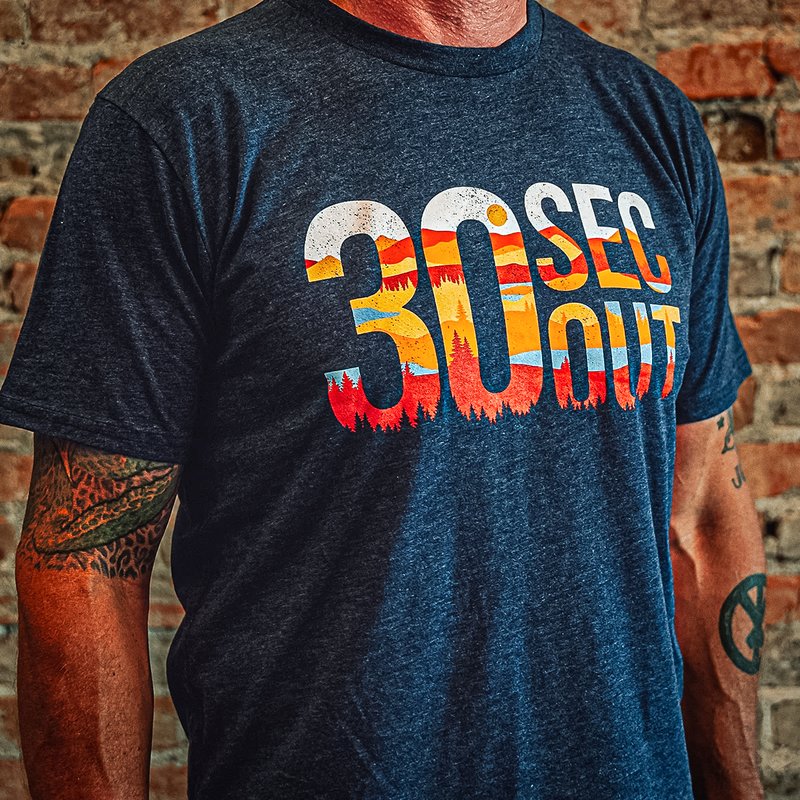
“I just make stuff that I think is cool,” he said. “I’m working in contrasts — experimenting with ideas, pop culture, and cross-pollinating that with the military — it’s fun, and people seem to really like it.”
With TK employees, Thirty Seconds Out is a relatively small brand that’s completely online and sells direct to consumers. Sales during the pandemic were excellent and have only risen since. The business is expanding and developing distribution in Europe. While growth is good, Evangelista said it’s a fine balance to keep.
“I want to grow, but I don’t want to lose my life or my mind doing it,” he said. “I’ll work, but my free time is important to me, too — I really like to spend time outdoors.”
While he’s proud of his business, he feels his best out on the slopes, trails, or exposed rock faces.
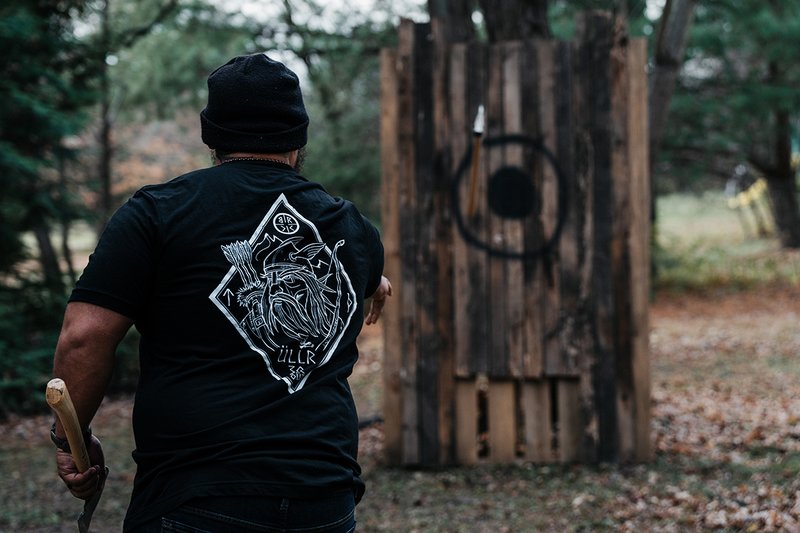
“It’s out there — in the mountains, forests, and deserts — that a few key things come into play. There’s less noise, giving us more headspace to think clearly,” he said. “It can make our path forward more concrete in the mind. Priorities in our lives rise to the top of our thought process, and everything else fades. Stillness, awe, humility, and gratitude are what I feel when out there.”
You can get the exclusive, limited-edition Thirty Seconds Out x BRCC shirt by signing up for the BRCC Shirt Club now!
READ NEXT - The Air Force Pilot Who Survived a Leap From Space
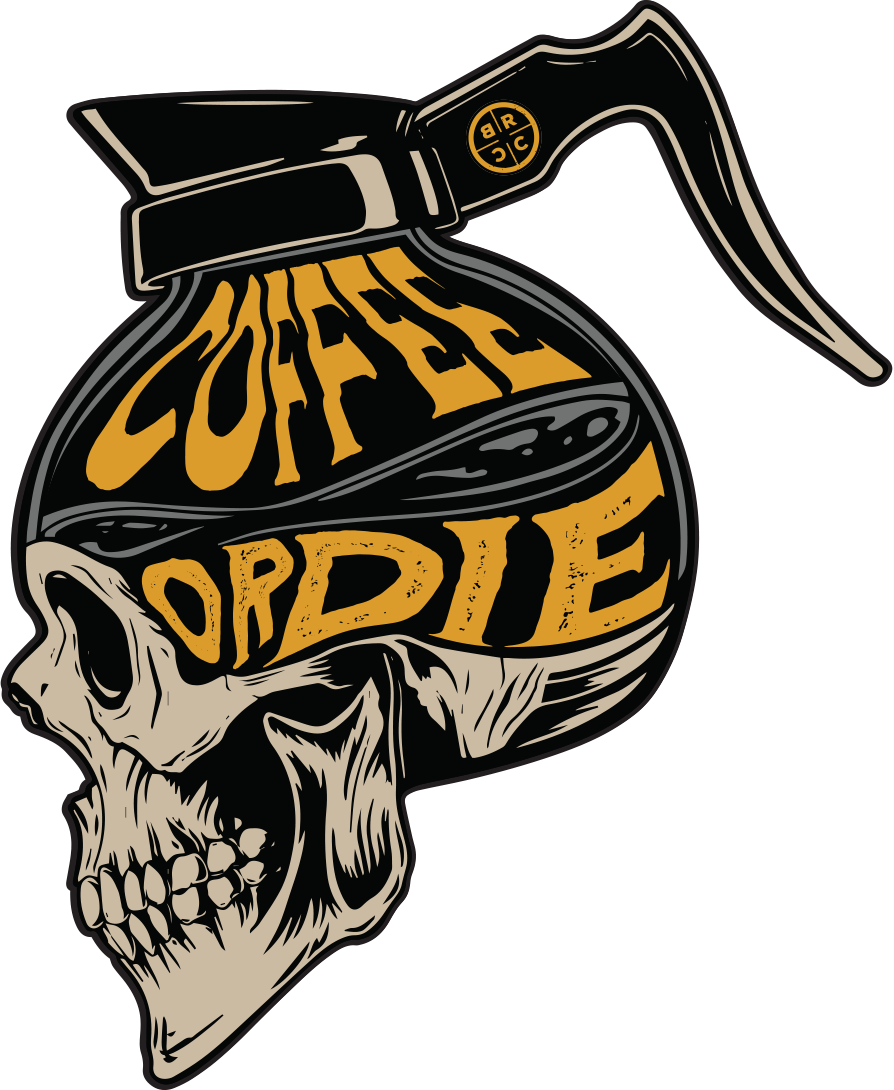
Coffee or Die is Black Rifle Coffee Company’s online lifestyle magazine. Launched in June 2018, the magazine covers a variety of topics that generally focus on the people, places, or things that are interesting, entertaining, or informative to America’s coffee drinkers — often going to dangerous or austere locations to report those stories.
BRCC and Bad Moon Print Press team up for an exclusive, limited-edition T-shirt design!
BRCC partners with Team Room Design for an exclusive T-shirt release!
Lucas O'Hara of Grizzly Forge has teamed up with BRCC for a badass, exclusive Shirt Club T-shirt design featuring his most popular knife and tiomahawk.
Coffee or Die sits down with one of the graphic designers behind Black Rifle Coffee's signature look and vibe.
Biden will award the Medal of Honor to a Vietnam War Army helicopter pilot who risked his life to save a reconnaissance team from almost certain death.
Ever wonder how much Jack Mandaville would f*ck sh*t up if he went back in time? The American Revolution didn't even see him coming.
A nearly 200-year-old West Point time capsule that at first appeared to yield little more than dust contains hidden treasure, the US Military Academy said.











